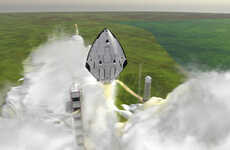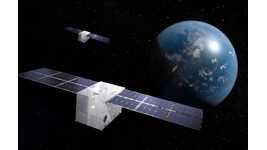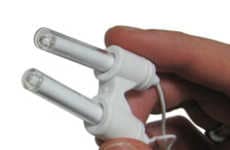
DARPA Shares Details on Phoenix Project to Scavenge Parts from Orbit
Andrew Sztein — January 24, 2013 — Tech
References: darpa.mil & arstechnica
Eco-consciousness is everywhere these days, and with its new Phoenix Project, the Defense Advanced Research Projects Agency (DARPA) is showing that these ideals aren't just for the Earth's surface anymore.
The Phoenix Project is essentially a recycling program for satellites already in orbit. Many decommissioned or damaged satellites circling the Earth as you read this have fully functioning parts, like antenna arrays and solar panels, that can be salvaged. The tricky scientific part comes from syncing orbit with the salvaging satellite and the dead satellite.
DARPA believes that the robotic mechanic system will help lessen not only costs for future satellite programs, but also help reduce the amount of space junk and debris that is currently littering the Earth's orbit. DARPA has also uploaded a video showing how exactly the Phoenix Project would work in practice through simulations.
The Phoenix Project is essentially a recycling program for satellites already in orbit. Many decommissioned or damaged satellites circling the Earth as you read this have fully functioning parts, like antenna arrays and solar panels, that can be salvaged. The tricky scientific part comes from syncing orbit with the salvaging satellite and the dead satellite.
DARPA believes that the robotic mechanic system will help lessen not only costs for future satellite programs, but also help reduce the amount of space junk and debris that is currently littering the Earth's orbit. DARPA has also uploaded a video showing how exactly the Phoenix Project would work in practice through simulations.
Trend Themes
1. Satellite-recycling - The recycling of decommissioned or damaged satellites for their fully functioning parts by collecting them with robotic mechanics and syncing orbit with the salvaging satellite and the dead satellite.
2. Space Clean-up - Cleaning up space junk and debris orbiting the Earth by salvaging parts of decommissioned or damaged satellites with the robotic mechanic system.
3. Orbital Sustainability - Promoting orbital sustainability by decreasing waste and recycling materials in orbit that can still be utilized for future satellite programs.
Industry Implications
1. Space Technology - There is an opportunity for companies to develop robotic mechanic systems to salvage parts of decommissioned or damaged satellites to help reduce future satellite program costs and promote orbital sustainability.
2. Environmental Technology - Companies specializing in environmental technology can develop new ways of cleaning up space junk and debris orbiting the Earth by utilizing the salvaged materials from decommissioned or damaged satellites.
3. Military Technology - Military technology companies can find disruptive innovation opportunities in creating new methods of satellite recycling to increase military efficiency and reduce costs associated with future satellite programs.
0.9
Score
Popularity
Activity
Freshness















